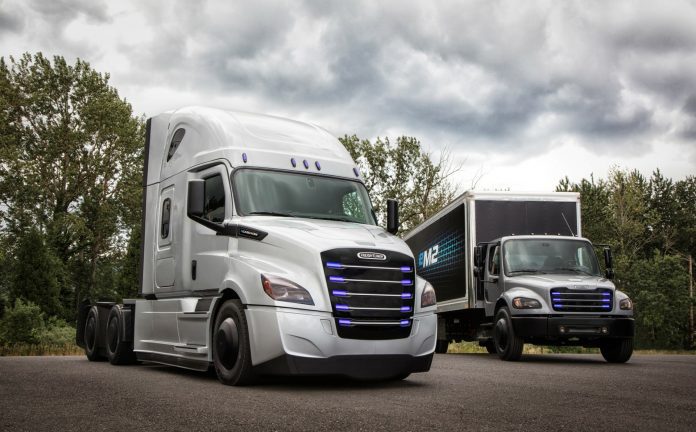Volvo and Daimler Truck have agreed to form a joint venture to develop a common software-defined vehicle platform and dedicated truck operating system. This initiative is a major step towards the digital transformation of heavy-duty commercial vehicles, aiming to improve customer efficiency and experience through advanced digital features.
The joint venture will operate independently, while both companies will remain competitors in other business areas. The collaboration aims to standardize hardware and software, allowing for faster product updates and enabling both companies to offer unique digital vehicle features.
This move is especially important as both companies heavily invest in transitioning to CO2-neutral drive technologies.
Volvo’s President and CEO Martin Lundstedt highlighted the benefits of this collaboration, stating, “Combining our efforts to accelerate the customer benefits that a software-defined truck platform will bring makes sense given the rapid transformation of our industry. This partnership allows us to share costs, increase volumes, and accelerate development, ultimately creating value for our customers.”
Meanwhile, Daimler Truck’s CEO Martin Daum emphasized the importance of digitalization in vehicles, noting, “Developing a common software-defined vehicle platform with Volvo Group will enable us to turn our vehicles into programmable devices. This will allow us to build unique digital vehicle features with greater speed and efficiency for our global truck and bus customers.”
The joint venture will be headquartered in Gothenburg, Sweden, and will incorporate existing assets and resources from both companies. The goal is to set the industry standard for a truck operating system and offer these products to other OEMs. The venture will provide a common developer platform as a service, enabling customers to build their own differentiating software layers on top of the standardized system.
Despite the collaboration, Volvo and Daimler Truck will continue to compete vigorously in the marketplace, offering their own unique digital solutions and end-user applications built on the shared platform. This strategy ensures that both companies can maintain their distinct competitive edges while benefiting from the efficiencies of shared technology development.
The preliminary agreement is currently non-binding, and a final agreement is expected within this year. Pending necessary examinations and approvals from the relevant authorities, the goal is to finalize the transaction by the first quarter of 2025.




